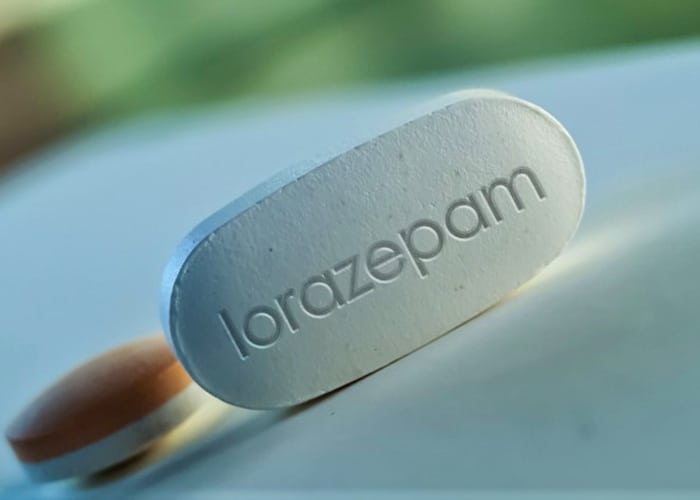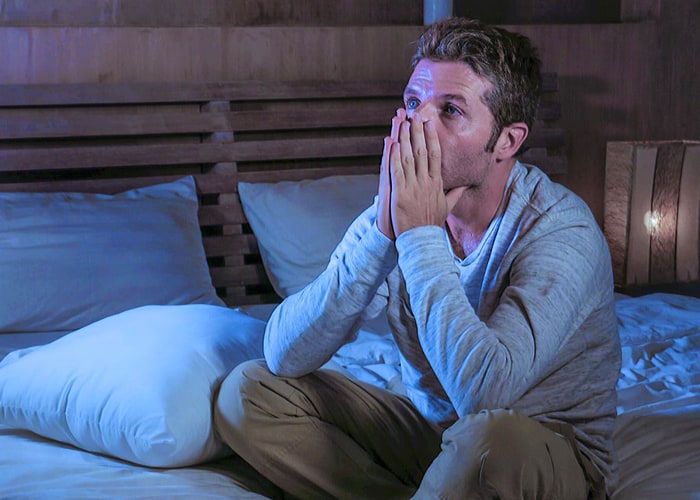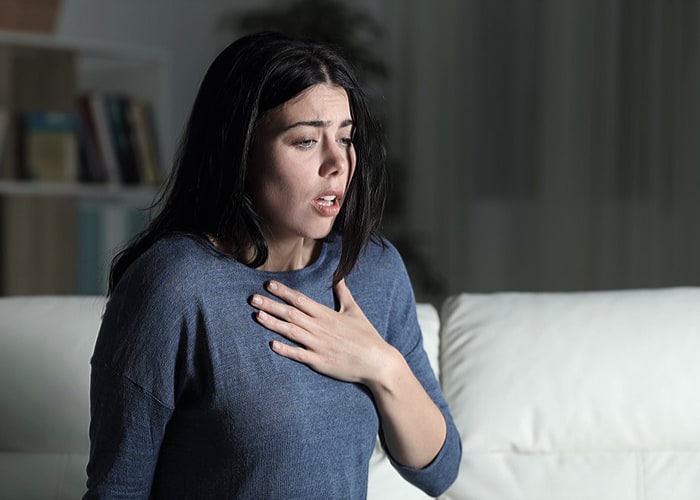What Is Ativan?
Pronounced as /ˈat-i-ˌvan/
Ativan is a brand name for the generic medication lorazepam used to treat anxiety. Ativan belongs to the class of drugs known as benzodiazepines. Benzodiazepines are sedatives and are used to reduce stress, anxiety, or muscle spasms. They target a specific receptor in the brain to produce more GABA neurochemicals which relax the brain and body.
Ativan's effectiveness as a long-term medication (more than 4 months) has not yet been evaluated by other clinical studies. It is highly recommended that patients taking Ativan or other anti-anxiety medications be monitored at specific time intervals to assess the effect of the drug so it will not lead to addiction.
What Does Ativan Look Like?
Ativan is sold in the market in tablet form in varying strengths: 0.5 mg, 1 mg, and 2 mg. The inactive components of this drug include lactose monohydrate, magnesium stearate, microcrystalline cellulose, and polacrilin potassium. Ativan injection is also used for certain medical conditions.

Here is a summary chart for the physical form of the tablet.
| Strength | Color | Shape | Imprint |
| 0.5 mg | White | 5-sided | A, BPI 63 |
| 1 mg | White | 5-sided | A, BPI 64 |
| 1 mg | White | 5-sided | A, 64 WYETH |
| 2 mg | White | 5-sided | A, BPI 65 |
What Are the Street Names of Ativan?
Just like other drugs, Ativan or lorazepam come in different names when traded illegally on the streets. These street names are used to avoid detection by law enforcement officers.
These names are also used when selling benzodiazepines or other illegal drugs online or on social media channels. You should always take caution about buying street drugs as they usually are counterfeit or contain other drugs.
Street Names of Ativan:
- Benzos
- Blue V
- Candy
- Downers
- Sleeping pills
- Sleepers
- Tranks
What Is Ativan Used For?
Ativan (Lorazepam) is an anxiolytic medication that is used for many different conditions. While it is more commonly used for treating anxiety symptoms in people with anxiety disorders like GAD (generalized anxiety disorder), Ativan is also used for treating other conditions such as seizures, spasms, and withdrawal.

Generalized Anxiety Disorders
Ativan has been approved by the Food and Drug Administration as a short-term medication (under 4 months) to treat Generalized Anxiety Disorder (GAD) and anxiety related to depressive symptoms.
Ativan is used to treat symptoms such as difficulty sleeping, restlessness, and agitation. It is also known to be effective in reducing physical symptoms like muscle tension, sweating, and heart palpitations.
Panic Attacks
Ativan is also an effective treatment for panic attacks, as it can quickly reduce the physical symptoms associated with them including intense heart palpitations, rapid breathing, and sweating.
It can also provide a calming effect on the mind that helps to reduce the fear, anxiety, and distress that often accompany panic attacks.
Seizures
Lorazepam is also approved for the treatment of seizures, as it can help reduce convulsions and decrease the duration of seizure activity.
The anticonvulsant effects of lorazepam and other benzodiazepines may be associated with their binding to voltage-dependent sodium channels, instead of the typical benzodiazepine receptors.
Alcohol Withdrawal Symptoms
Ativan is also used for treating alcohol withdrawal symptoms, including tremors and agitation. It helps to reduce restlessness, anxiety, insomnia, and other psychological symptoms associated with alcohol withdrawal.
Insomnia
Insomnia is one of the most common sleep disorders. Ativan is approved as a short-term treatment for sleep problems due to anxiety or depression. However, using Ativan or any sedative drugs is not recommended without a proper prescription.
Chemotherapy Side Effects
Lorazepam is frequently taken to counteract adverse reactions such as prospective nausea and vomiting prior to chemotherapy, or can be utilized to alleviate queasiness that doesn't disappear after utilizing other anti-nausea drugs.
Recreational Use
While the drug is used to effectively treat several conditions, many people also abuse Ativan illicitly for recreational purposes. While it is a Schedule IV controlled substance as per the DEA, Ativan still has a potential for misuse and drug abuse.
While Ativan may not be as strong as other drugs in the benzodiazepine class or other illegal drugs like cocaine or meth, it's still important to take Ativan with caution as taking too much Ativan can cause physical dependence and substance use disorder.
Ativan or lorazepam is still a benzodiazepine drug. Among different drug classes, benzodiazepines have been shown to be addictive.
How Does Ativan Work?
Ativan works on the central nervous system, particularly on the GABA receptor site. Among other drugs under the benzodiazepine class, Ativan has the shortest half-life in the blood, so there’ll be less chance of concentration build-up which could lead to toxic effects.
Likewise, Ativan is more stable and has fewer drug interactions with other substances, compared to other drugs in the same class. Ativan's impacts last for a shorter period, making it a better option if you’re looking to relieve symptoms quickly and effectively.
How Strong is Ativan?
Even though anti-anxiety prescription drugs like Ativan have less addictive potential compared to other drugs classified as Schedule I, Schedule II, or Schedule III controlled substances, they still pose serious side effects or adverse reactions and should not be used in the long term.
To get the right medicinal effect from Ativan, one has to get a customized prescription from a doctor or physician. Taking high doses of Ativan can be dangerous.
Ativan is the least reactive among other substances under the benzodiazepine class. However, when Ativan is taken together with loxapine (Loxitane), it gives off extreme sedative effects.
The general dose for Ativan is an initial dose of 2 to 6 mg, orally taken every 8 to 12 hours. For patients with insomnia, the dose is 2 to 4 mg before sleeping.
Depending on the patient, the initial dose, daytime doses, and evening dose may vary. You may even be given divided doses or lower doses by the doctor or pharmacist depending on your condition.
The dosage of Ativan may also vary depending on the patient’s age, weight, and medical history. It's important to not take high doses or compensate for a missed dose on your next dose. If you have a missed dose, do not double it. Take the next dose as prescribed by the doctor or pharmacist.
As always, it's best to consult with your doctor or physician before taking Ativan or any medical drugs to get the right amount and frequency of dose for optimal effectiveness.
How Long Does Ativan Stay in Your System, Blood, Urine, Saliva, and Hair?
The average half-life of this Ativan is 12 hours which means after your last intake, it will stay in your system for approximately 2.75 days until fully flushed out. Furthermore, lorazepam glucuronide, the active agent of lorazepam, has a half-life of 18 hours.
If you are to undergo a drug test, you may be wondering how long the substance stays in your system after taking Ativan.
The exact duration will depend on several factors like age, weight, and health condition. How much Ativan you took and the frequency of use also affects the time the drug stays in your body.
For people taking Ativan, below are estimates of how long the drug can be detected through different drug testing methods.
Blood test: 6 hours after ingestion and lasts up to 3 days after
Urine test: up to 6 days
Saliva test: up to 8 hours
Hair test: up to 4 weeks
What Are the Side Effects of Ativan?
Benzodiazepine users, including those who use Ativan, will notice side effects after taking the drugs. With Ativan, this medication affects the brain and the body in different ways. There are short-term side effects and long-term side effects associated with Ativan use.
Short-term Side Effects:
- Relaxant effect
- A feeling of lightheadedness
- Muscle weakness
- Disorientation
- Loss of appetite
- Trouble sleeping
Long-term Side Effects:
- Increased risk of suicidal behavior
- Ataxia or low coordination and unsteadiness of the body
- Asthenia or low body strength
- Vertigo
- Nausea and vomiting
- Jaundice
- Dysarthria or difficulty in speaking
- Hypersensitivity to light and noise
- Drug Abuse
Drug Interactions and Contraindications Ativan
Like other medications, Ativan may interact with other medications and cause serious health problems and adverse effects. Certain medications like barbiturates, MAOIs, opioid medication, and alcohol can lead to dangerous side effects when taken with Ativan.
In general, Ativan and other medications under the same class are only prescribed for 2 to 4 weeks of medication to prevent any physical dependence, side effects, and withdrawal symptoms.
Ativan has also shown great potential for fetal damage. Ativan is not suitable for nursing mothers as it can be detected in breast milk.
Is Ativan Addictive?
Yes, Ativan is addictive. Like other benzodiazepines, Ativan can become habit-forming and has the potential for abuse and addiction.
Developing an addiction to this drug is possible even when taken as prescribed and in the recommended doses. Recreational use can also cause addiction.
People using this prescription medicine should take it with caution as this medication may cause physical dependence or tolerance if used for longer than 4 weeks. Suddenly stopping the use of Ativan may also cause withdrawal reactions and side effects.

How Do You Get Addicted to Ativan?
Ativan addiction is a real problem and what's alarming is that it can happen even if you have a legitimate medical condition. It is important to be vigilant about any signs of Ativan addiction and take appropriate steps to have it treated or managed.
There are different ways a person can develop a physical dependence on Ativan. Below are some of the ways a person can become addicted to Ativan:
Taking More Ativan Than What Was Prescribed
Ativan is an effective sedative for calming the brain and its effects can become addictive when taken in high doses. It is not uncommon for people struggling with anxiety or using Ativan for a legitimate medical condition to take a higher amount for their next dose of Ativan over time.
When this happens, tolerance to Ativan can be built and physical dependence can occur. More and more Ativan will be needed and the user will not be able to feel the same relief if dosage reduction is implemented. If it's suddenly stopped, withdrawal reactions will occur.
Taking Ativan Longer Can Cause Physical Dependence
Taking lorazepam tablets longer than what was prescribed by the doctor or pharmacist is also another way to get addicted. When you exceed the recommended dose or extend the duration of use, you increase your risk of experiencing Ativan dependence, side effects, and eventually, withdrawal reactions.
Taking Ativan Recreationally
Another way to develop an addiction is by taking Ativan with no doctor’s prescription. If Ativan is taken for recreational purposes, it can become habit-forming. Taking Ativan for purposes not approved by the Food and Drug Administration can be addictive.
Recreational use of Ativan is risky because it can increase the risk of side effects and benzodiazepine overdose, which may lead to coma or death.
Having Past History of Drug Abuse
If you have a history of drug abuse or addiction, taking Ativan will increase your risk of developing a physical dependence on the medication. It is best to tell your doctor if you are at risk for an Ativan addiction before taking the medication.
Why Is Ativan Dangerous?
This prescription drug is dangerous for two reasons: (1) higher detrimental effects in higher doses and (2) interactions with other substances.
When Ativan is abused at higher doses, some of its adverse effects include dementia, suicidal behavior, coma, respiratory depression, thrombocytopenia or low platelet count, and agranulocytosis or decrease of granulocytes white blood cells.
Aside from that, the brain relaxant effect of this drug is magnified when combined with other neural depressants such as alcohol, antipsychotics, barbiturates, sedatives, sedative antihistamines, narcotics, analgesics, anticonvulsants, and anesthetics.
Avoid drinking alcohol or other substances with Ativan can cause respiratory depression, severe drowsiness, coma, or even death. Moreover, this drug causes fetal damage in pregnant women and is not suitable for nursing mothers.
What Causes Ativan Overdose?
Because Ativan is a prescription medication approved by the Food and Drug Administration used to treat anxiety, some people have the misconception that it does not cause an overdose.
However, the unfortunate reality is that you can experience an overdose of Ativan. Below are some of the causes of a drug overdose.
High Doses of Ativan Can Cause an Overdose
Overdose with Ativan occurs when one intakes more than what is prescribed or above the general dose of 2 to 10 mg a day. Likewise, excessive intake to get quick results or for recreational purposes causes an overdose of this substance. If you feel that your dose is not taking effect, tell your doctor instead of self-medicating.
Ativan Overdose Can Happen When Mixed With Other Substances
If you drink alcohol or use other medications with Ativan, this can cause an overdose. For instance, if you mix Ativan with an opioid medication that is used to treat pain, this could cause an overdose. Avoid drinking alcohol or mixing Ativan with other drugs to avoid overdose. Medical help is needed when this happens.
Counterfeit Pills Being Sold as Ativan
Ativan overdose can also occur if you purchase counterfeit pills being sold as Ativan. These counterfeits may contain dangerous substances like fentanyl that can easily cause an overdose.
What Are the Signs of an Overdose?
If you are overdosing on Ativan, you may experience several signs and need medical help. Here are some of the common signs and symptoms of an Ativan overdose.
- Confusion
- Slow reflexes
- Disorientation
- Experiencing deep sleep
- Sudden unconsciousness
- Sudden restless feeling
- Uncontrolled muscle contractions
- Involuntary eye movements
- Bleary eyesight
- Severe drowsiness
- Difficulty breathing
How Do You Treat Ativan Overdose?
If you are experiencing the overdose symptoms listed above, especially difficulty breathing, severe drowsiness, or unconsciousness, seek immediate medical attention from a healthcare provider from a hospital or a poison control center. Medical help from a poison control center is necessary to properly address an Ativan overdose.
The treatment for an Ativan overdose includes the use of activated charcoal to absorb high doses of medication, intravenous fluids, and medications like benzodiazepine antagonist flumazenil to reverse the effects of Ativan. Additionally, supportive care may be provided to prevent further harm or damage.
What Are the Withdrawal Symptoms from Ativan?
A person who takes Ativan for more than 2 to 4 weeks can become dependent on the substance. If you suddenly stop taking the drug, you may experience benzodiazepine withdrawal symptoms. These withdrawal reactions can be uncomfortable and painful.
To avoid withdrawal symptoms after taking Ativan for a long period, it is important to discontinue the drug gradually by dosage reduction slowly over several weeks with the help of your doctor.

Withdrawal Symptoms Include:
- Trouble sleeping
- Irritability
- Increased anxiety level
- Panic attacks
- Uncontrolled sweating
- Inability to focus
- Frequent headaches
- Muscle spasms
- Insomnia
- Unstable mood swings
- Blood pressure changes
How Can You Treat Ativan Addiction?
Ativan addiction is a serious condition that requires medical help and counseling. If you're experiencing side effects or any withdrawal symptoms, the best option is to call your doctor or consult a healthcare provider from an addiction treatment center.
Treatment from a licensed rehab can help you overcome Ativan addiction. The program usually involves medication-assisted treatment, counseling, therapy, and supervised detoxification. Furthermore, support groups are an integral part of the rehabilitation process.





